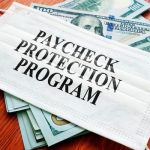Due to the ongoing COVID-19 pandemic, churches in California have once again been prohibited from holding indoor services. Some churches have openly defied this latest order by continuing to conduct indoor services and others have joined in a lawsuit against the state on the grounds that the governor’s order violates constitutional rights to freedom of speech and religion.
While most California churches are finding ways to serve congregations while staying in compliance with state mandates, the day will come when the ban against indoor services will again be lifted. When that day comes, church leaders will need to have a plan in place to safely resume worship.
Legal considerations for churches
Currently, churches are being urged to continue remote worship services or switch to outdoor services. Once indoor worship resumes, churches need to keep these legal considerations in mind as well as they proceed with re-opening:
Remember the fiduciary duty of care.
Church leaders owe a fiduciary duty of care regarding church activities. This means remaining vigilant when it comes to protecting the health and safety of those who participate in those activities and adhering to the legal standard known as the “business judgment rule,” which presumes that officers and directors are making decisions based on best practices standards issued by health and government organizations and in good faith. Failure to apply due care could expose a religious organization to potential liability for personal injury.
Adhere to best practices for church activities
Church leaders should look to best-practice guidelines for dealing with COVID-19-related safety issues, specifically the guidance provided by The Centers for Disease Control and Prevention (CDC) and the CDPH. There are a number of very specific recommendations that will help church leadership develop appropriate plans for maintaining a safe environment for participants and church workers.
The California Department of Public Health (CDPH) has also issued COVID-19 guidance for churches and other providers of religious services that includes information on creating a safe, clean environment for workers, worshippers, volunteers, and other visitors.
Communicate best practices
Not only should churches follow best practices for in-person activities, they also need to communicate this information to staff, worshippers, volunteers, and any others involved in church activities. Current practices should be communicated via email and mail, posted on the organization’s website, and detailed in handouts that are posted and passed out in the church. It is especially important to communicate and train all staff members and volunteers on COVID-19-related protocols. Consider developing a COVID-19-specific training manual and ensure it is distributed to each staff member and volunteer so the organization’s expectations for safeguarding the health and safety of all are clear. Document your training steps to show compliance with best practices.
Use waivers.
To help minimize liability risk, use an updated general waiver or a COVID-19-specific waiver for those participating in church activities. Consult with legal counsel for help in drafting appropriate waivers for your organization.
Verify insurance.
Church leadership should review the organization’s insurance coverages for potential liability issues related to the spread of COVID-19. Some insurers may now offer new or revised policies that include COVID-19-related risks.
Pay attention to contract language.
Planning for future activities in the age of coronavirus can be challenging. Churches that host annual special events or contract with vendors for future services need to examine contract language for provisions dealing with cancellations. These contracts should provide cancellation options due to “force majeure” or “Acts of God” so that there will be minimal adverse financial consequences to the organization from a COVID-19-related cancellation.
The Church Law Center of California advises churches and other nonprofits on how to protect themselves from risk while furthering their mission, especially in times of crisis. If you have questions about how to mitigate risk and protect your organization during the COVID-19 crisis, call us today at (949) 892-1221 or reach out to us through our contact page.






